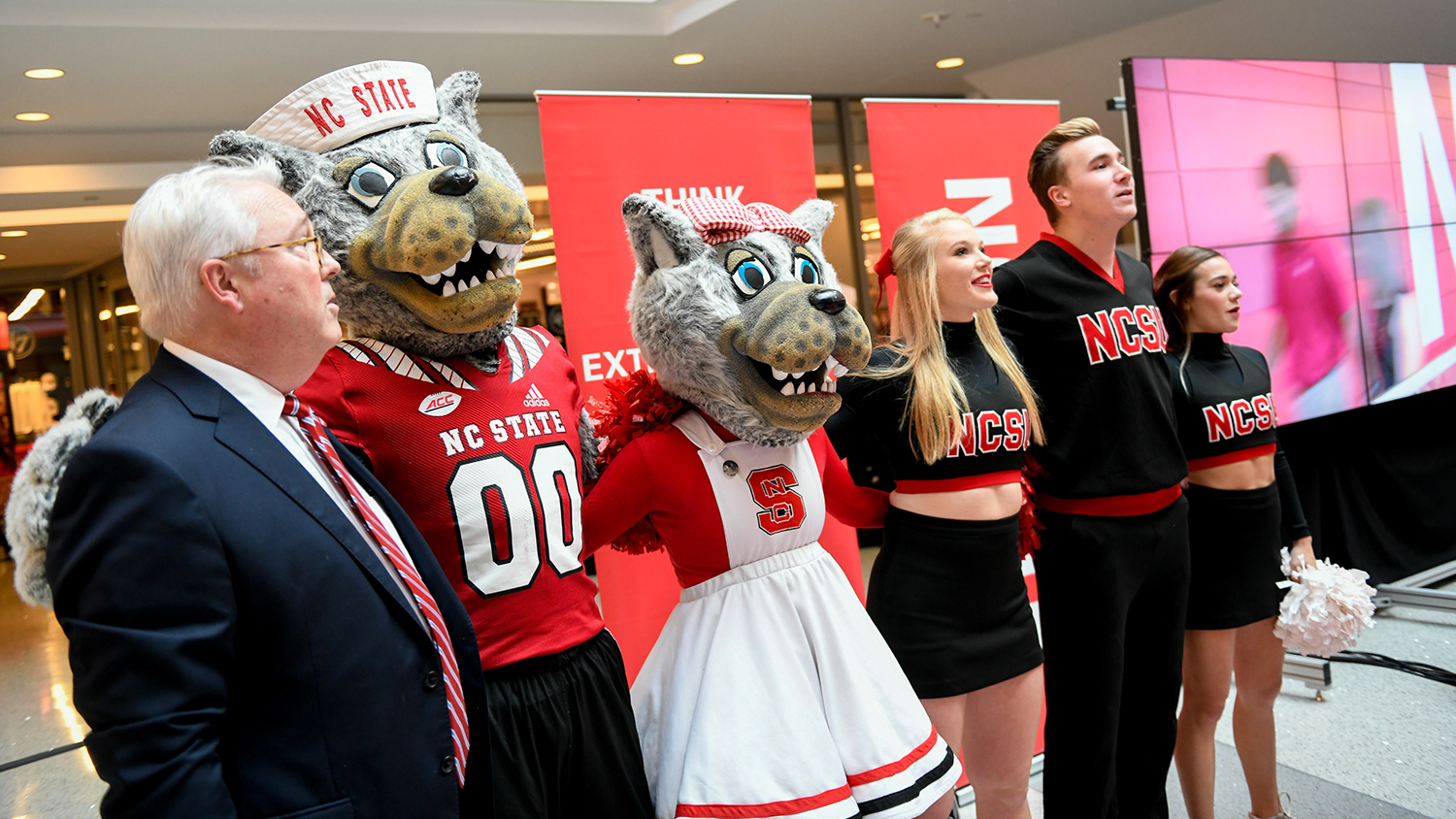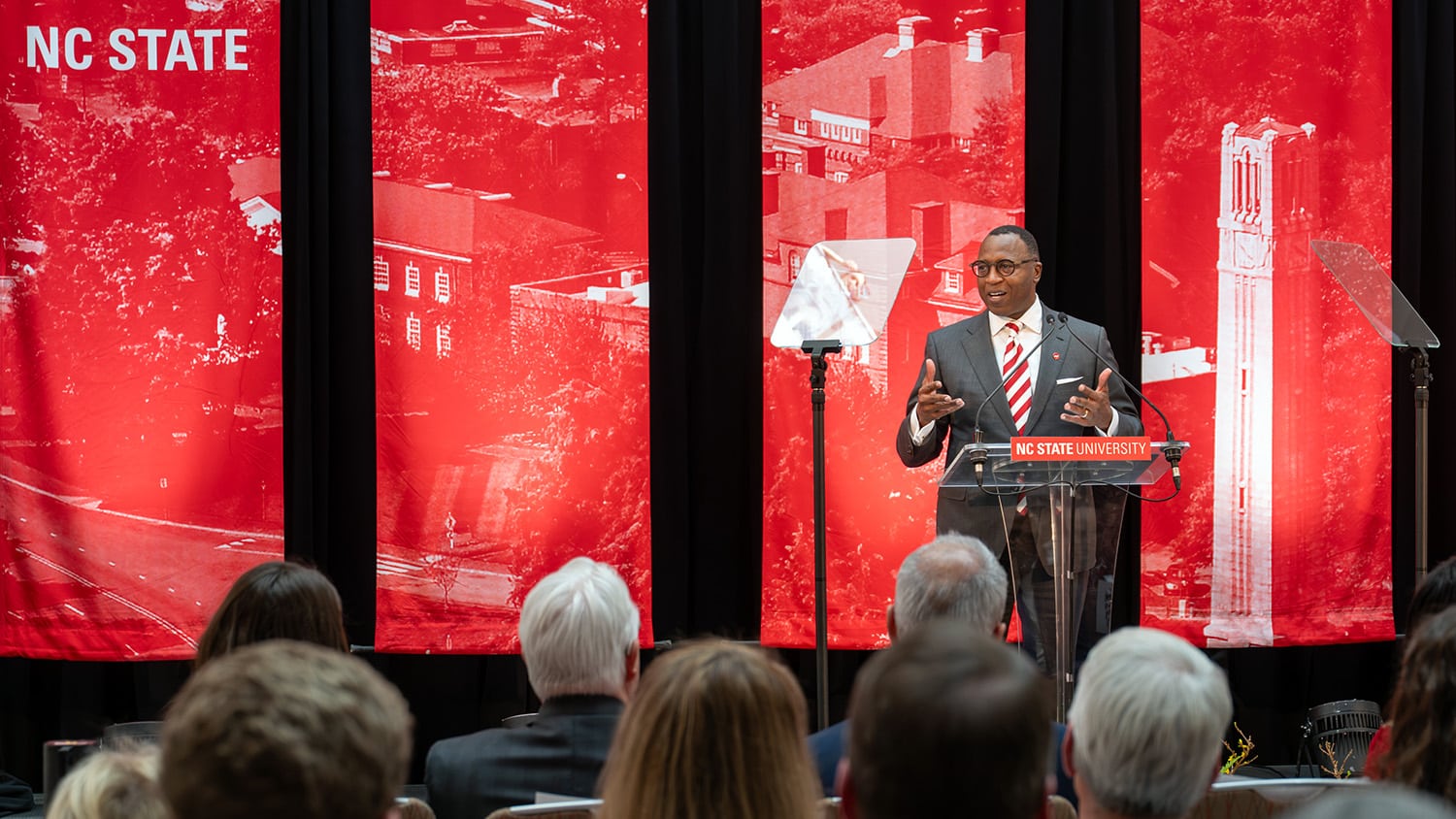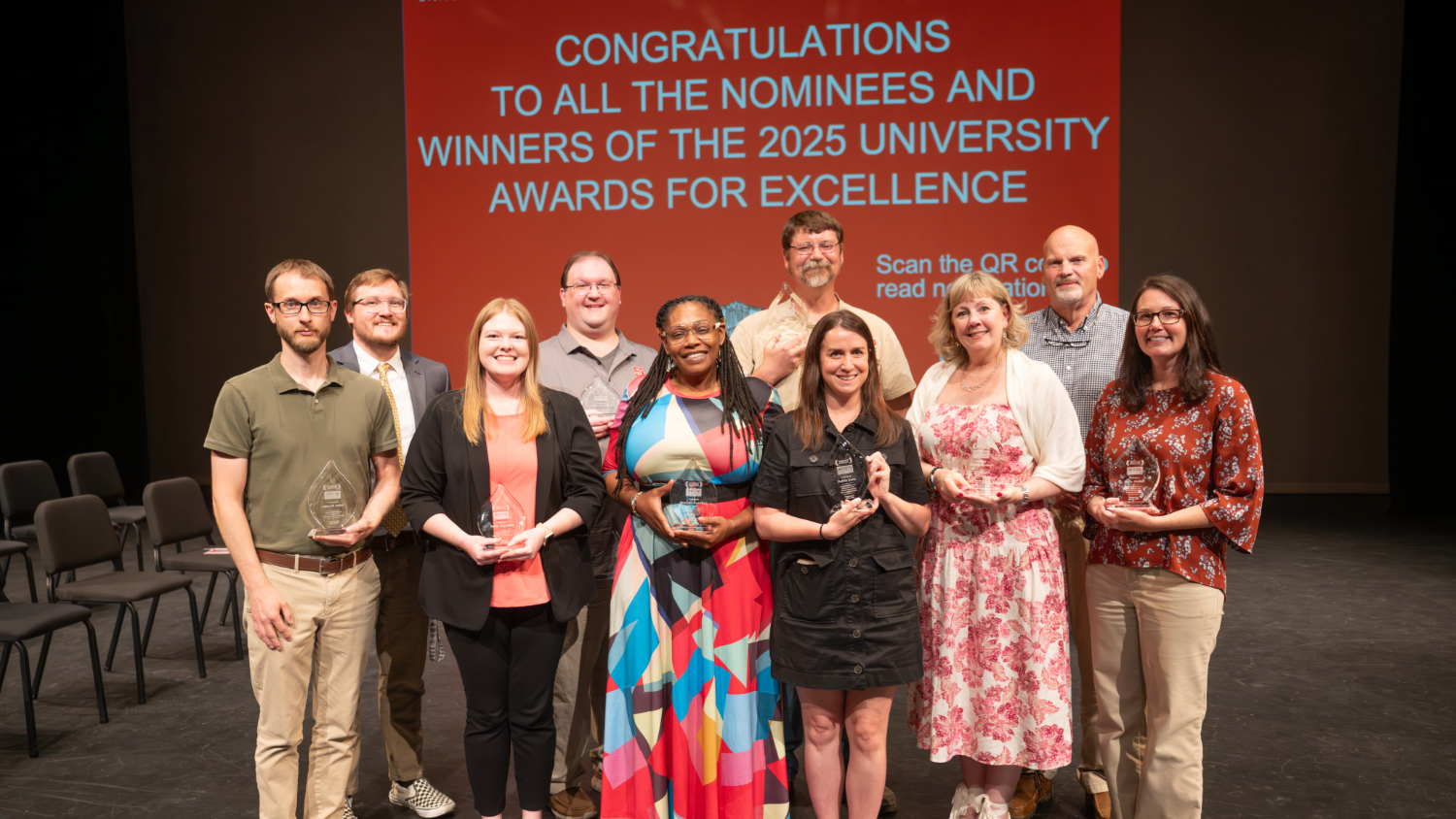Survey Takes a Second Look at Employee Engagement
A 2018 survey of faculty and staff led to a host of workplace improvements across campus. In February, employees will have the opportunity to weigh in again.

We’ve had a lot to celebrate at NC State in the past two years: record-breaking donations, upgrades to the Belltower and other facilities, a new paid parental leave benefit and an alumna serving on the International Space Station.
“From academics to research to athletics and beyond, NC State is thriving,” Chancellor Randy Woodson declared in his fall address at the Talley Student Union in November.
Behind the scenes, colleges and units across campus have been quietly working to enhance key aspects of the employee experience. They’ve conducted planning sessions and focus groups, upgraded computers and furniture, offered new professional development opportunities, improved recruitment and retention efforts and enhanced communication channels to create a more welcoming, inclusive workplace.
Much of this activity has been informed by the results of the 2018 UNC System Employee Engagement Survey, a questionnaire given to all full-time permanent employees at the system’s 17 institutions. More than 50% of NC State’s faculty and staff responded to the survey’s 60 questions, giving the university high marks for leadership and identifying areas where the university could do better.
Beginning Feb. 4, faculty and staff will have two weeks to weigh in on the same questions again when the UNC System conducts the confidential survey for the second time. Watch for an email with a survey link and instructions from ModernThink, an independent research and consulting firm that is administering the survey.
Action Plans
Marie Williams, associate vice chancellor for human resources, co-chairs a campus committee tasked with interpreting and responding to the survey data. She’s impressed by the campuswide efforts to improve employee satisfaction and engagement.
“Overall, more than 75% of our survey respondents rated their job satisfaction as very good to excellent,” Williams said. “Some institutions would look at those results and be happy to maintain the status quo. But NC State is well known for our ‘think and do’ spirit.”
Nancy Whelchel, NC State’s director for survey research, co-chairs the engagement survey committee. Based on her analysis of the 2018 survey results, committee members urged colleges and units to focus their efforts in four areas in the lead up to the 2020 survey:
- Diversity and inclusion.
- Policies, resources and efficiencies.
- Institutional pride and employee recognition.
- Professional development.
The committee can point to a growing list of initiatives underway across campus that directly impact the employee experience in these areas, including enhancements to hiring, onboarding and training programs, a new campuswide wellness campaign and a cultural competency pilot project.
Some of these efforts reinforce areas where NC State already has a strong campus culture, such as institutional pride. In other areas, such as diversity and professional development, the committee sees opportunities to make gains. All these efforts align with institutional goals in NC State’s strategic plan, Pathway to the Future.
The committee also encouraged colleges and units to identify their own focus areas based on their employees’ responses to the 2018 survey. That sparked a wave of thinking and doing across campus.
Culture and Communication
The College of Veterinary Medicine is focusing on “building an inclusive college community and a culture of pride and integrity,” says Sheri Renno, assistant dean for human resources.
A college committee has identified several goals, including enhancing leadership development and performance, ensuring a healthy work environment and building a common sense of purpose through open, transparent communication.
The committee conducted a series of listening sessions to get feedback from employees and other college stakeholders.
“We started a journey to change our complex culture,” Renno says. “We still have a great deal of work to complete, but our journey has already been transformative.”
In the College of Agriculture and Life Sciences, the focus is on facilities and infrastructure, communication and employee recognition programs, says Rebecca Zuvich, assistant dean for human resources.
“Repair and renovation of facilities was by far the most common item identified as needing action in the college,” she says. “We are hopeful that improved workspaces and much-needed updates will lead to higher overall rates of employee satisfaction.”
The college has also revised its employee awards programs, expanded the college diversity council, launched two new diversity programs and retooled its internal communications efforts to provide employees with more practical resources.
The College of Sciences is taking a proactive approach to addressing one of its biggest concerns: financial resources.
“To positively address resources, we are trying to increase revenues by growing our online programs,” says Nikki Price, assistant dean for culture, talent and human resources. “We’re also encouraging faculty to seek research funding and providing them with resources and staff to facilitate grant writing.”
The college also conducted a comprehensive review of faculty workloads, with an eye toward developing a transparent and sustainable budget model.
Dean Chris McGahan and college leadership worked with HR’s Learning and Organizational Development to make their meetings more effective and efficient. And the college hosted workshops on unconscious bias and cultural competency with NC State’s Office for Institutional Equity and Diversity to improve employees’ ability to communicate and work well with people from different cultures.
It’s not just the colleges that are working on employee engagement. In the Division of Academic and Student Affairs, for example, staff members identified the top 10 areas of concern from the 2018 survey, then held focus groups with employees to identify potential solutions.
Have Your Say
Looking ahead to the 2020 survey, university leaders hope even more faculty and staff members choose to participate, giving them a better picture of the issues that motivate employees — as well as those that present challenges.
This is especially important as the university begins working on an update to its strategic plan, due to roll out later this year.
“Every voice is important,” says Executive Vice Chancellor and Provost Warwick Arden. “We’ve made remarkable progress as a university in the past decade thanks to the dedication and commitment of our faculty and staff. By working together to build and maintain a culture of continuous improvement, our future looks even brighter.”
- Categories:


